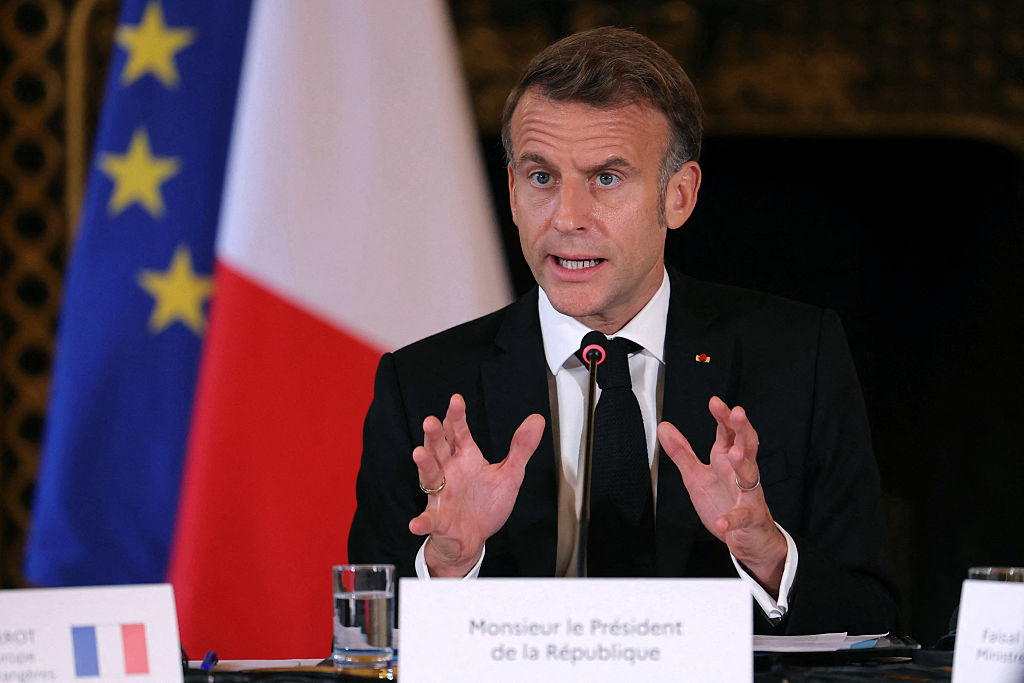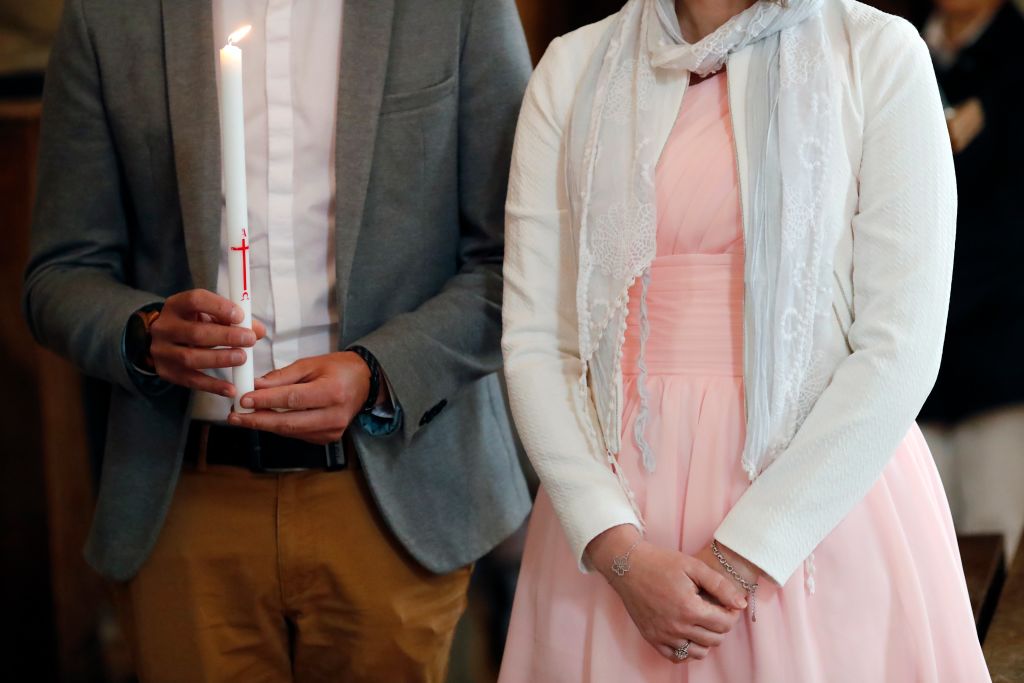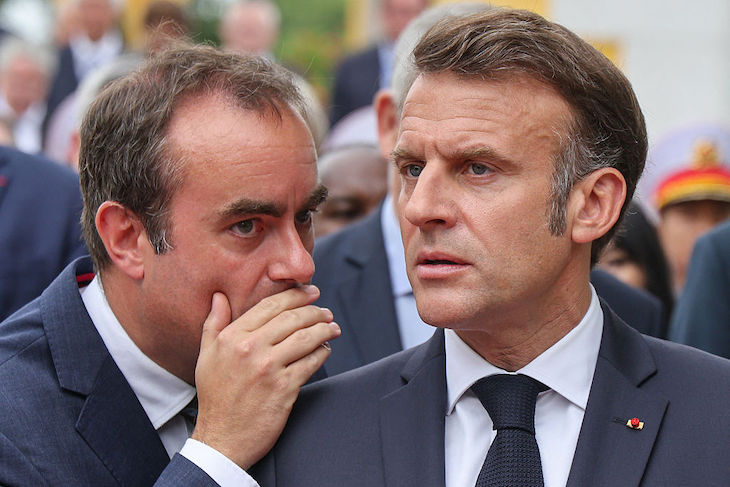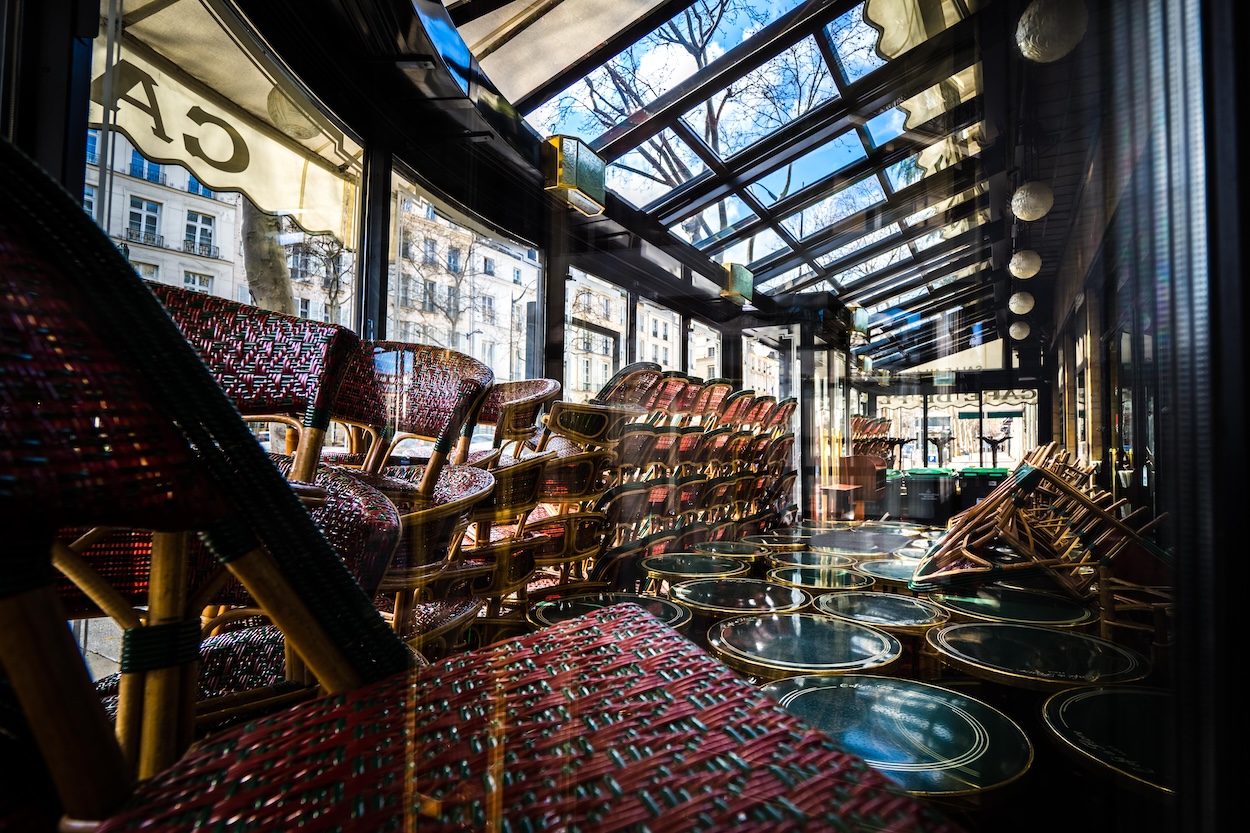A couple of hours before Emmanuel Macron addressed France on Sunday night I received a meme on WhatsApp from a French friend. It was a game card for ‘Macron’s Aperitif Bingo’, the rules for which were simple: swigs of a drink of your choice would have to be downed every time the president said a certain word or phrase during his latest declaration about his ‘war’ on coronavirus. ‘War’ incidentally was two swigs, while ‘shortage of masks’ was three and ‘sacrifices’ was four. I imagine that by the end of the president’s speech quite a few players were somewhat unsteady on their feet.
You suspect that Macron would not have been amused to learn that while he was making his solemn address to the nation, many of his ‘chers compatriotes’ were guzzling at his expense. How long ago it feels since he strode regally into the Élysée with a vow to restore respect and dignity to the presidency.
As presidential discourses go, I didn’t think it was that bad. It combined humility, contrition and gratitude, and most importantly, for the millions watching, it gave May 11 as the date the confinement will end, provided the French continue to respect the rules of the lockdown, as they have thus far with commendable assiduity .
Macron also uttered what was, for him, a surprising confession: ‘We have to reinvent ourselves, and me first of all,’ he said. But what form will this ‘reinvention’ take?
According to Bruno Retailleau, the president of the center-right Republicans in the Senate, the coronavirus crisis has signaled ‘the defeat of progressivism’. That declaration may prove premature. Many such ‘progressives’ were temporarily silenced by the coronavirus crisis, but they’ve regrouped in recent days, suggesting that the virus might be discriminating against ethnic minorities. This illustrates the apparent depth of their dogma.
The irony, in France, at least, is that most ‘progressives’ are privileged, white middle-class people, of the sort who fled cities for the country in the days before the confinement began. The people on the frontline are overwhelmingly the working-class, many of whom are indeed from ethnic minorities, the doughty men and women who are nurses, refuse collectors, shop workers and bus drivers or police officers. At the end of their hard day’s work, they go home to their often cramped and stuffy apartments, a hardship acknowledged by President Macron in his address.
When Macron came to power nearly three years ago it was with a vision of reinventing France as a ‘start-up nation’, and he struggled to conceal his disdain for the ‘little people’, once infamously describing them at the launch of a start-up center in 2017 as ‘nothing’. On another occasion he mocked the ‘change-resistant Gauls’, by which he meant the working class opposed to his start-up vision.
In fact the little people have turned out to be the pusillanimous hipsters and progressives, whose rhetoric is now not only tedious but irrelevant. The age of agonizing about transgender rights and gender neutral language is over, at least in France, with the country heading for the worst recession in living memory and fears of major social unrest if the disparities between the ‘haves’ and the have nots’ are not addressed.
In an op-ed column for a newspaper at the weekend, a Republican MP called Guillaume Larrivé warned that France was confronted with a grave crisis that went far beyond simply defeating coronavirus. Citing a number of factors that could cause a perfect storm of discontent, Larrivé said the impending economic slump would increase the social inequalities that had led to the emergence of the Yellow Vest movement. Add to this another wave of migration, another series of Islamist terror attacks and an upsurge in inner city violence and the country ‘is heading towards a civil war’, he said.
***
Get three months’ free access to The Spectator USA website —
then just $3.99/month. Subscribe here
***
Also in conversation with the press at the weekend was Marion Maréchal, former golden girl of the National Front, who since stepping down as an MP in 2017 has maintained that she will not return to political life. Might she be reconsidering?
Still only 30, the niece of Marine Le Pen could become the spokesperson for the generation who will be most devastated financially by the coronavirus crisis. ‘The president claimed he wanted to make us a start-up nation but he had forgotten that first one must be a big scientific and industrial nation,’ she said, in a lengthy diatribe against the government’s handling of the crisis. ‘One of the big lessons to take [from the crisis] is that the real resilience, it’s the ‘Made in France’.’
That sort of patriotic talk is likely to strike a chord among the millions of French men and women who loathe Macron’s globalist view and have reached a point where the only thing they believe he’s good for is bingo.
This article was originally published onThe Spectator’s UK website.

























